

Digital program
Fr 01.03. Mensch, Musik #8 „Coincidentally FREE“
19:30 Haus des Rundfunks
Johann Sebastian Bach (1685 – 1750)
„My heart is swimming in blood“ –
Cantata No. 199 for soprano, oboe, two violins,
viola and basso continuo BWV 199
(Weimar version, 1712, with new text by
tauchgold)
Gideon Klein (1919 – 1945)
Partita for string orchestra (after the string trio,
1944)
Renée T. Coulombe
„I haunt three ghosts“ (2024)
Arthur Honegger (1892 – 1955)
„Pacific 231“ – Mouvement symphonique N° 1
Sara Abazari (born 1976)
„De Profundis“ for orchestra
Eric Satie (1866 – 1925)
„Parade“ – ballet music (excerpt)
Arvo Pärt (born 1935)
„Cantus in memoriam Benjamin Britten“
for string orchestra and bells
Besetzung
Bas Wiegers, conductor
Philipp Mathmann, countertenor
Gustavo Llano, choreography and dance
Renée T. Coulombe, digital audio and piano
Inka Löwendorf, acting
tauchgold, text, concept, realisation
Ariane Stamatescu, assistant director
Hannah Wendel, Stage manager
Born in the right place by chance?
By chance, lucky enough to be able to devote yourself to your love of music undisturbed from an early age?
How free are art and music?
When am I free, when are we free?
What may, what should, what will freedom cost – me, you, us?
Our so beloved freedom? Just an accidental gift of history? – Conceived, written and directed by tauchgold, Mensch, Musik #8 “Coincidentally FREE” takes up this question from a different direction:
How can music and art still reverse the downward trajectory of the will to freedom even in the face of direct threat?
How can creative Eros put a stop to the destructive instinct?
And what happens when I replace guilt and repentance before God with love and responsibility before others?
Under the direction of Dutch conductor Bas Wiegers, the Rundfunk-Sinfonieorchester Berlin is once again transcending the boundaries of symphonic music by inviting artists to push the boundaries of classical performance practice – this time with works by composers who were given or denied freedom for random reasons. All of them – composers and their works – are linked by the question: When am I free and what does freedom mean to me?


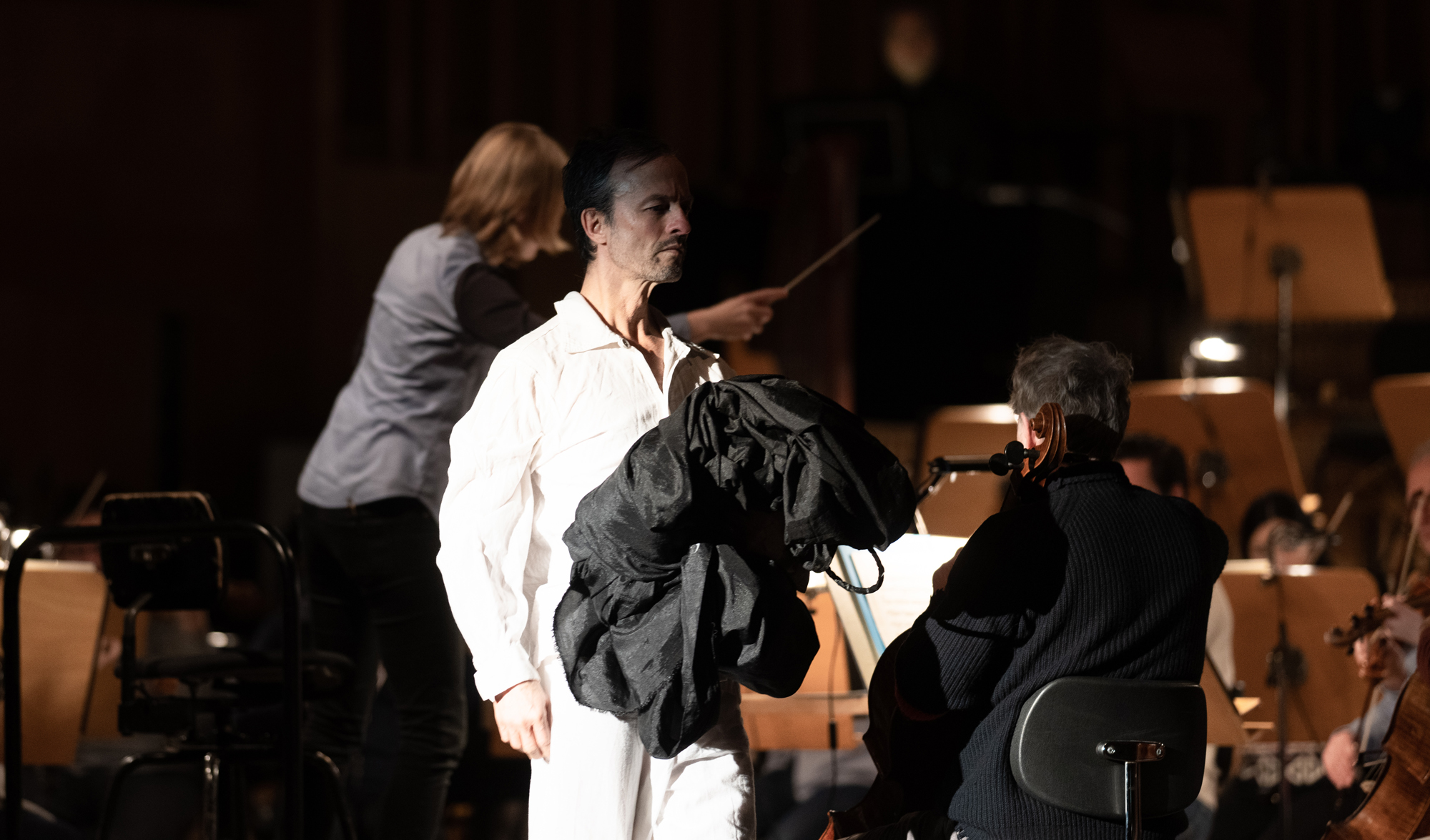
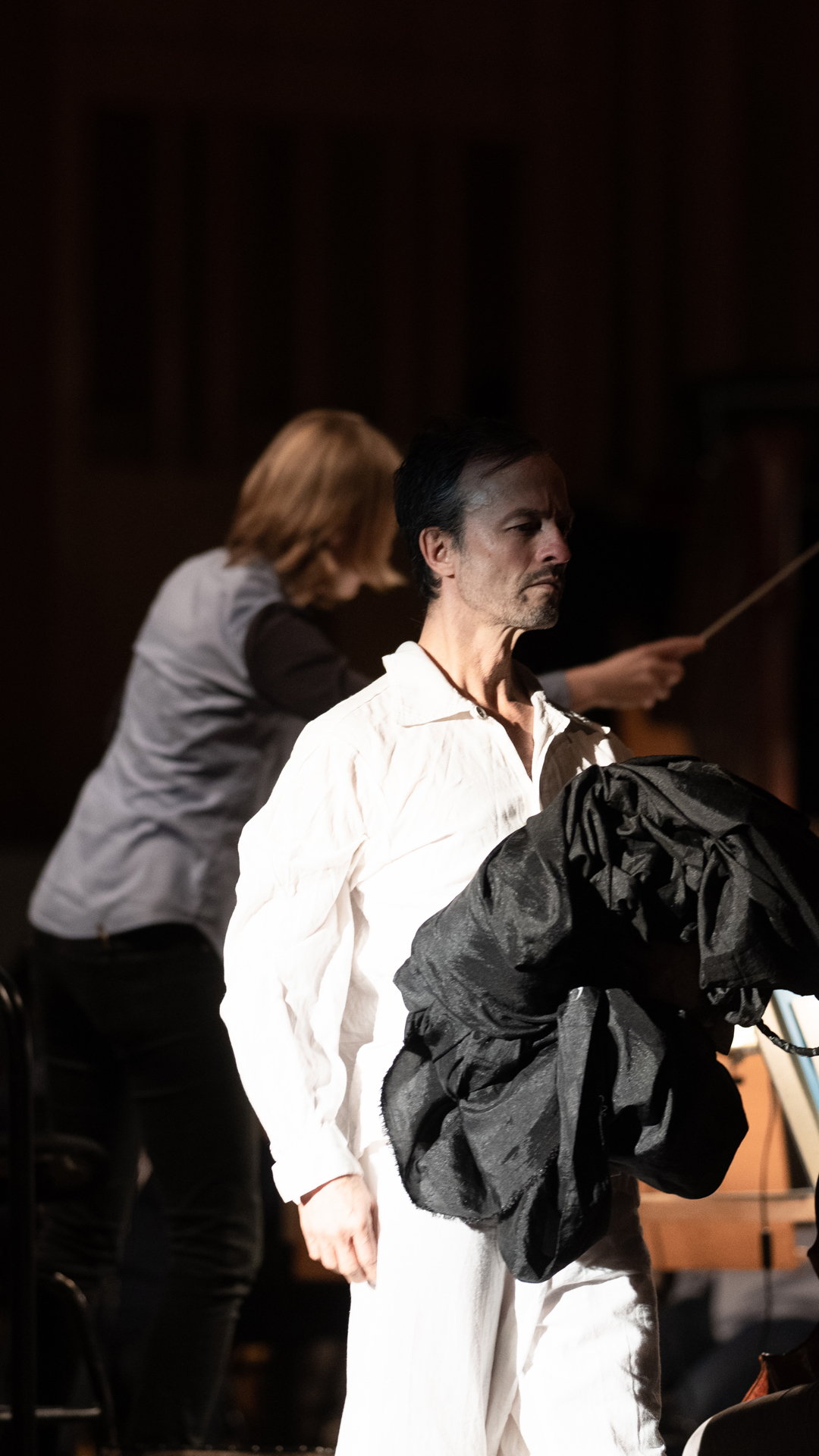
Program
Johann Sebastian Bach (1685 – 1750)
„Mein Herze schwimmt im Blut“ -
Cantata No. 199 for soprano, oboe, two violins,
viola and basso continuo BWV 199
(Weimar version, 1712, with new text by
tauchgold)
>„My heart is choked in blood“
>„Should silent sighs and quiet moans“
Gideon Klein (1919 – 1945)
Partita for string orchestra (after the string trio,
1944)
>2nd movement: Lento
Renée T. Coulombe
„I haunt three ghosts“ (2024) – I
Arthur Honegger (1892 – 1955)
„Pacific 231“ – Mouvement symphonique N° 1
Johann Sebastian Bach
„Mein Herze schwimmt im Blut“
>„Nor should you show me mercy“
>„Bowing deeply, my heart contrite“
Sara Abazari (born 1976)
„De Profundis“ for orchestra
Johann Sebastian Bach
„Mein Herze schwimmt im Blut“
>„Enough of this charade!“
>„I was broken as a child"
>„I give myself unto mye wounds“
>„How joyful is my heart“
Renée T. Coulombe
„I haunt three ghosts“ – II
Eric Satie (1866 – 1925)
„Parade“ – ballet music (excerpt)
Renée T. Coulombe
„I haunt three ghosts“ – III
Arvo Pärt (born 1935)
„Cantus in memoriam Benjamin Britten“
for string orchestra and bells
Background

Coincidentally FREE
Clowns or Today we have moved on
The Great American Clown said: “I have German in my blood!” while holding small children in cages and throwing kitchen towels at disaster victims. The Great English clown put one foot on the French president’s table, which was of course meant as a wonderful joke. The Great Brazilian Clown burned down the Amazon forests and blamed the firefighters. The Great Italian Clown had gotten something on his fingers for the moment and sulked. Meanwhile, in the background, a somewhat undersized Russian Clown was waiting for his moment to finally make an appearance as a really big ringmaster. As a finger exercise to keep him on his toes, he occasionally killed a journalist or a dissident just to hint at what to expect from him in the future. What a blast! Along the way, every now and then an Islamist blew himself up (an idiosyncratic form of escapism!), so-called social media turned a profit-oriented blind eye when distant fake news factories launched attacks on democratic states, the rich and super-rich hid their money in tax havens whilst being cheered for a few paltry donations to social projects, and of course, as usual, some species died out, sea levels rose and glaciers melted. Back then, all was still well with the world. Today we have moved on.
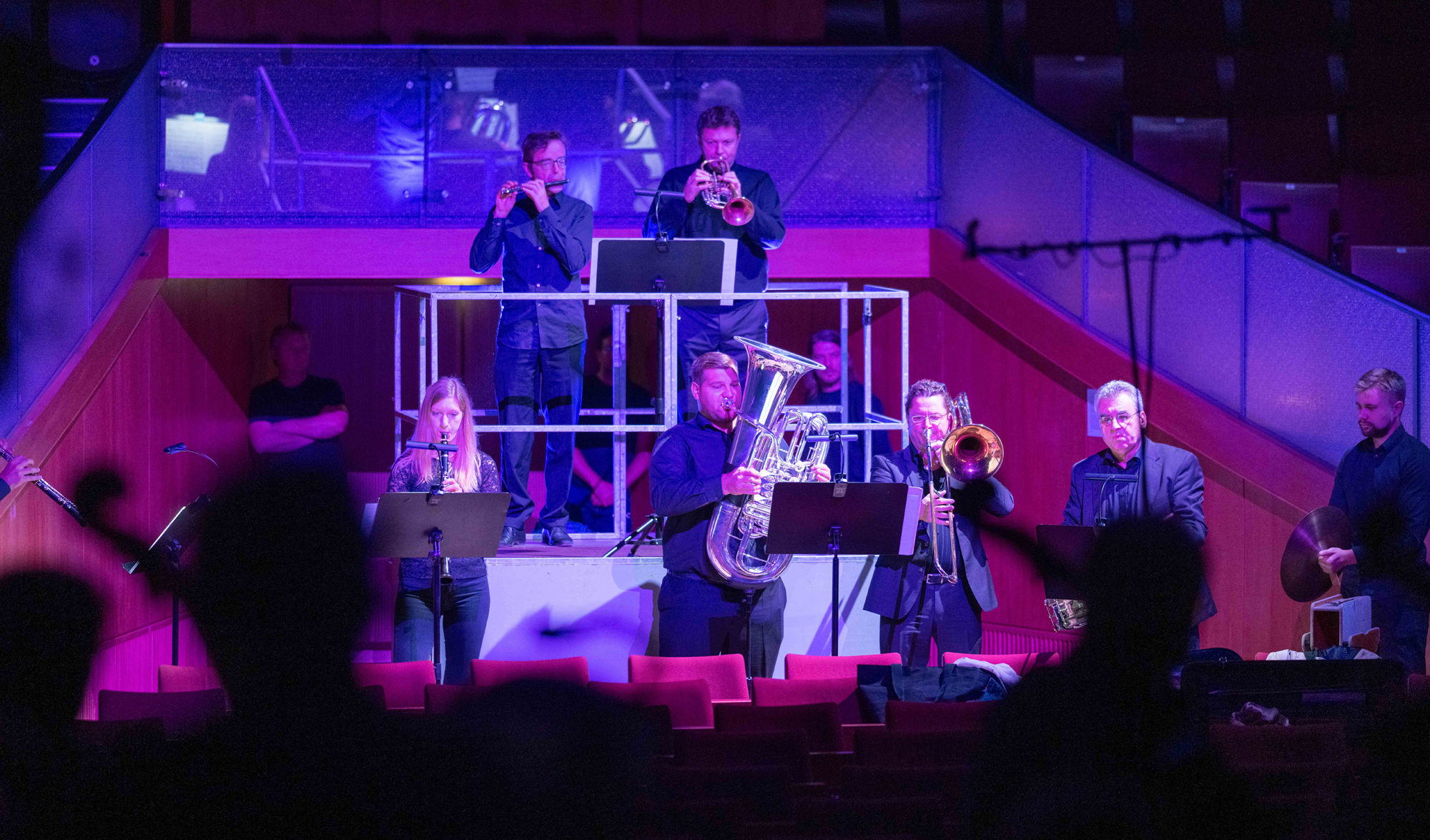
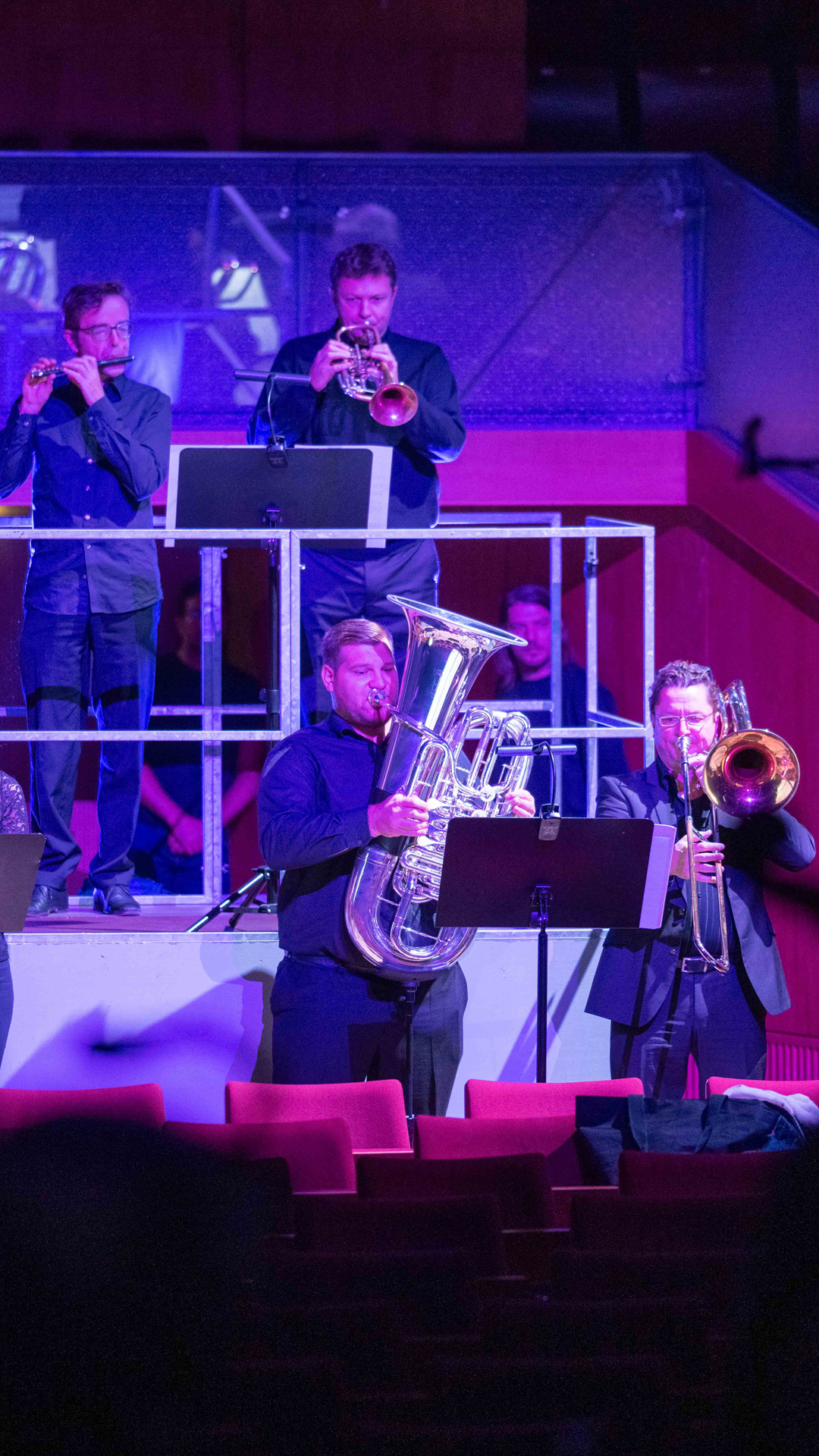
Maturing in freedom
As if the painful experiences of the 20th century
had not existed, freedom and democracy
are up for grabs worldwide. Not just because
tyrants and terrorist organizations are literally
attacking them. Everywhere, populists are
gaining ground with slogans that are as simple
as they are false, while moderate voices are
shaking their heads or receiving malice for their
efforts to achieve balanced positions. – Was
freedom just an accidental gift of history that
we in the so-called West owed to the rubble of
the Second World War?
Under the direction of Dutch conductor Bas Wiegers, the Rundfunk-Sinfonieorchester Berlin is once again pushing the boundaries of symphonic music by inviting artists to push the boundaries of classical performance practice - this time with works by composers who were given or denied freedom for fortuitous reasons. They are all connected by the question: When will I be free and what does freedom mean to me? At the centre of the evening is the Bach cantata “Mein Herze schwimmt im Blut” (1712), which the artist duo tauchgold has given a new, secular text. Sung by countertenor Philipp Mathmann and translated into movement by dancer and choreographer Gustavo Llano, this version will have its world premiere tonight. Is it permissible to provide a famous and venerable Bach cantata with a new text? Especially a text that transcends the given Christian context and therefore repeatedly eludes the link between the original text and the musical setting? This question was the subject of long explorations and controversial discussions between Philipp Mathmann, who initiated the project, early music specialist Professor Winfried Toll and, last but not least, tauchgold as the librettists. The result: it is not only permissible, it is perhaps even necessary, when the love of Johann Sebastian Bach’s magnificent, timeless music is accompanied by a philosophically based re-evaluation of traditional content! While the original text contemplates the themes of guilt, remorse and desperate fear of God based on the biblical story of the Pharisee and the Tax-collector, human freedom and responsibility for others is now placed at the centre: salvation is not brought about by a transcendent God or saviour, but by a developed and conscious humanity that is prepared to face its own demons.
Gideon Klein
The pianist and composer Gideon Klein suffered a very different kind of threat. Deported to the Theresienstadt ghetto by the Germans on 4 December 1941, two days before his 22nd birthday, he was one of the musicians who had to demonstrate the “magnanimity” of the Nazis in the concentration camp until 1944. A few weeks after a propaganda film about the supposed idyll in Theresienstadt was shot in the summer of 1944, the prisoners were deported to the gas chambers in Auschwitz, batch by batch. Gideon Klein was on the transport that left northern Bohemia on 16 October 1944. He had finished composing his last work, the string trio, on 7 October. He was not yet 25 years old at the time. Gideon Klein died in the Fürstengrube subcamp of the Auschwitz concentration camp on 27 January 1945, the day this concentration camp was liberated. At the very heart of the trio – which the Czech composer Vojtĕch Saudek arranged for string orchestra in order to make it accessible to a wider audience as a “partita” – in the heart of the middle movement, a variation literally constricts the listener’s heart. Quiet, unadorned, monophonic, in a casual andantino tempo and succinct 5/8 metre, a small melody announces the most thorough of all cruelties: obliteration through forgetting. This music is a piece of resistance through its very existence. Human dignity has found a last refuge
Arthur Honegger
Thanks to his origins and history, Arthur Honegger, born in Switzerland in 1892, happened to be free. One hundred years ago, he translated his “physical pleasure” in locomotives and technical progress into impressive, driving music. The “musical construction” (Honegger) of the legendary locomotive Pacific 231” is based on the following objective observation: the quiet breathing of the stationary engine, the power output on the approach, the increasing speed and finally the transition into a ‘lyrical stage’ – into the pathos of a train of 300 tonnes, driven through the night at 120 kilometres per hour” (Arthur Honegger). At the time of composition in 1923, he had no idea how much railways would become a symbol not only of free travel, but also of journeys to death.
Sara Abazari
At the end, there are angry trumpet cries over hammering timpani, lifted up by a string choir made up of many individual voices. Sara Abazari calls her work “De Profundis”, which she composed for a concert by the Rundfunk- Sinfonieorchester Berlin (RSB) in spring 2023. She dedicates it to the “Zan Zendegi Azadî” uprising in Iran. Knowledge means a self-determined life in freedom, especially for women in Iran. Sara Abazari, born in Tehran, is a composer and music teacher. She studied piano and composition in Cologne and completed her doctorate in music theory at the University of Music and Performing Arts in Vienna with a thesis on “Music and Power in Iran”. In Sara Abazari’s composition, the initially single, despondent voice becomes audible, gradually combining with other individuals to form a polyphony. Until the dynamic and emotional climax right in the middle of the work, the rhythmic impulses grow together so that the musical message is articulated collectively – until it is literally shattered by hard timpani beats. Subsequent attempts at self-discovery lead to the aforementioned outcry at the end of the work via a hidden quotation from Gustav Mahler’s „Kindertotenlieder”.
Renée T. Coulombe
“I haunt three ghosts – invoking the sounds of composer ancestors Takemitsu, Oliveros, and Penderecki, this immersive composition uses field recordings, sampling, and extended instrumental technique in a grateful meditation on music’s power to hold us, even when everything has fallen apart.”
Eric Satie
A playful, chaotic “parade” as a departure into new musical worlds. The premiere in 1917, for which the French composer Eric Satie worked with Jean Cocteau (choreography) and Pablo Picasso (set design), became a scandalous sensation in Paris: what an extent of artistic freedom! Satie, mentor of the “Groupe des Six”, to which Arthur Honegger also belonged, composed little, but was all the more groundbreaking.
Arvo Pärt
For political reasons, the Estonian Arvo Pärt, born in 1935, was not able to visit Benjamin Britten, whom he admired, in Great Britain before his death. As is well known, freedom of travel was a foreign concept in the Soviet Union at the time. Pärt overcomes political boundaries with artistic means. His credo: Everything comes from silence and strives towards silence again. In between it moves into questions. Thoughtful silence also characterizes the “augmentated canon” on the descending A minor scale, which makes up the “Cantus in memory of Benjamin Britten” from 1977. “I work with a very small number of elements – one voice, two voices. I build them from the most primitive materials: with the triad, with a certain tonality. The three notes of a triad are like bells.” (Arvo Pärt)
tauchgold & Steffen Georgi


The will to be free
The dancer Gustav Llano and the actress Inka
Löwendorf address our human need for simple
answers in manageable black and white. Tender
and careful, wild and exuberant, quiet and
thoughtful, Llano with choreography and Löwendorf
with prose and poems conjure up the
image of a better, freer future that is possible
at any time – just not by itself, not by chance,
but by choice. Out of determination.
Sung lyrics
BWV 199
Mein Herze schwimmt im Blut
English Text
1. Recitativo
My heart is choked in blood
For now a fit of gloom
To mine own eyes
Makes me monstrous seem.
My conscience feels such pain
For I have led myself astray
By a fleeting beauteous lie
O, single, selfish night!
I and I alone
Have brought this woe upon myself
It is not the evil seed of Man
Which robs my soul of peace
Or bars it from heaven’s realm.
O, what pain I cause myself!
My shrivelled, dried-up heart
Would drink solace from any part
I long to shield it from the light of day!
When will this end? Enough! I shall not hide away.
2. Aria e Recitativo
Should silent sighs and quiet moans
Be the ones to speak my woes,
Now that my mouth is firmly closed?
Should these wet trails of tears
Offer certain evidence
That my heart, so numb, repents?
My heart may be a fount of tears
Spilling hotly from my eyes
Stay strong, my friend, do not give in!
3. Recitativo
Nor should you show me mercy
When I throw ashes on my head
Wash my face in salty streams
Beat my chest in remorseful woe
And say in plaintive tones
Can you forgive this wretched sinner?
May your heart stay strong
As my lips speak these words:
4. Aria
Bowing deeply, my heart contrite
I kneel before you, dearest friend.
I do profess my guilt
Yet please have patience
Have patience with me!
5. Recitativo
Enough of this charade!
Let me in response now say:
6. Choral
I was broken as a child
Now let me see what I can find
It may be hidden deep inside
It may bring painful thoughts to mind
For the wounds we hide away
Often cause fresh misery.
7. Recitativo
I give myself unto my wounds
With the patience of a heavy stone
May they be prepared for me
May this be a chance to mend my ways
So that I may finally be free and sing:
8. Aria
How joyful is my heart,
That you have been appeased
Full of trust and readiness
To embrace togetherness
With open heart once more.
Original cantata composed: 1712
Text by tauchgold after Georg Christian Lehms (1711) and Johann Herman (1630)
English version by Catherine Grosvenor
To be sung: whenever required (originally for the 11th Sunday after Trinity)
Short biographies
Bas Wiegers

Bas Wiegers is one of the most exciting conductors at the cutting edge of contemporary music with his captivating energy and great openness. As a guest of European symphony orchestras, soloist ensembles and opera houses, he confidently spans the spectrum from the Baroque to the music of today. It is precisely this programmatic breadth that is also reflected in his second season as Associated Conductor of the Munich Chamber Orchestra; during the 2023/24 season, Bas Wiegers will also conduct subscription concerts of the Royal Concertgebouw Orchestra for the first time; he will also make his debut with the Belgian National Orchestra, the Vienna Radio Symphony Orchestra (Claudio Abbado concert) and the Polish National Radio Symphony Orchestra.
Following his musical training in Amsterdam and Freiburg, Bas Wiegers initially dedicated himself to his successful career as a violinist specialising in historical performance practice. He was awarded the Kersjes Foundation Conducting Scholarship, followed by assistantships with Mariss Jansons and Susanna Mälkki at the Royal Concertgebouw Orchestra - and finally the decision to concentrate fully on conducting. Today, Bas Wiegers regularly delves into the treasure trove of scores for his listeners in the context of current projects with his podcast The Treasure Hunt and provides a very personal insight into his working process as a conductor.
Philipp Mathmann

His voice surprises with its bright clarity and fascinates with its intensity - the soprano Philipp Mathmann is one of the most sought-after countertenors internationally today. In the course of his still young career, he has taken on numerous leading roles in highly acclaimed productions such as Anastasio in "Giustino" (Handel), Abel in "Cain and Abel" (Scarlatti), Mirtillo in "Il pastor fido" and La Bellezza in "Il Trionfo del Tempo e del Disinganno" (Handel). These productions attracted national attention and were nominated for important prizes such as the Faust Prize and the Golden Mask Award.
Mathmann does not limit himself to the baroque repertoire; in 2021/22, for example, he sang the role of the Angel in the world premiere of Thorsten Rasch's "Die andere Frau" at the Semperoper Dresden and the role of the Scorpion Man in Jörg Widmann's opera "Babylon" at the Staatstheater Wiesbaden. In concert, Mathmann works with some of the most renowned early music ensembles such as the Freiburger Barockorchester, the Akademie für Alte Musik Berlin, Concerto Köln and conductors such as Christophe Rousset, Gianluca Capuano and Diego Fasolis.
Gustavo Llano
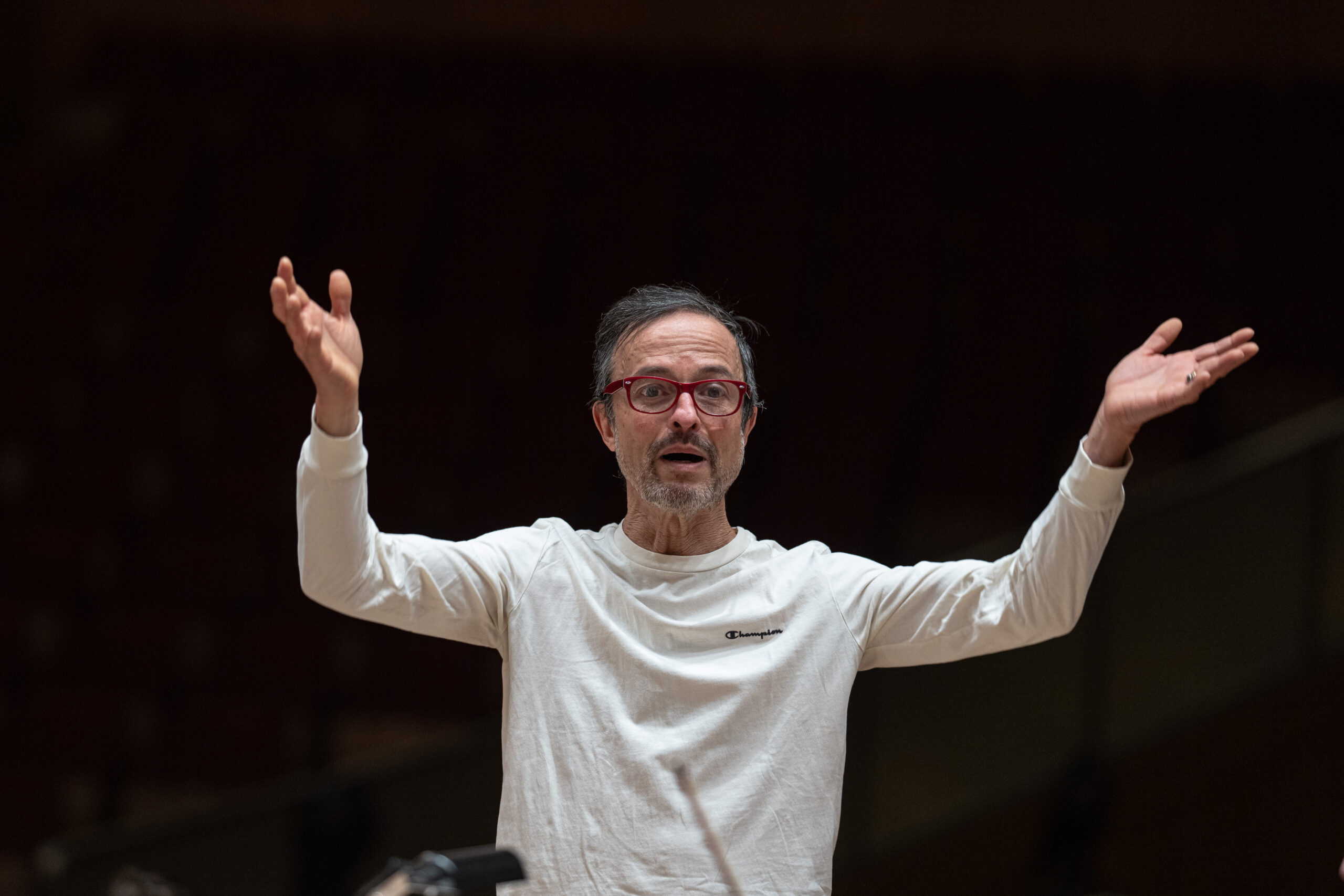
Gustavo Llano was born in Medellín, Colombia. He studied theatre at the Escuela Popular de Arte de Medellín (now ITM) and fine arts at the University of Antioquia before finally turning to dance. His dance teachers included Jorge Holguín, Álvaro Restrepo, Beatriz Gutiérrez, Peter Palacio and Silvia Rolz.
Since 1998, Gustavo Llano has been living in Berlin in self-exile, as he calls it. Like many other dancers of his generation, he left the country because of the violence. The final straw was the murder of his friend and teacher José Manuel Freidel, a visionary of socially critical Colombian theatre.
In Germany, Gustavo Llano initially danced in Ismael Ivo's company. It was through him that he met Johann Kresnik, with whom he worked for several years, first as a dancer and later as artistic assistant. Together with Kresnik, he staged "Plan Vía", a choreographic reflection on Colombia's present, and "Die Fledermaus" for the Wuppertal Opera in Bogotá. His own choreographic works include Tchaikovsky's "Queen of Spades" for the Los Angeles Opera as well as numerous pieces that he has staged in Europe, the USA and Latin America. Gustavo Llano's work is based on the idea of choreographic theatre, which differs from dance theatre in its political motifs and socially critical content and seeks the greatest possible expression with the simplest, most everyday means.
Renée T. Coulombe

Renée T. Coulombe is a composer of instrumental, electronic and acousmatic works, an improvising experimental pianist and performance-installation artist, and a researcher at the intersection of contemporary theory, sound and media culture. She is currently the programme director for the Creative Production Masters at the Catalyst Institute for Creative Art and Technology and founder of the collaborative art space The Willows Nest in Berlin, where she serves as artistic director. She also works as a scriptwriter, presenter, sound engineer and producer for a variety of commercial clients and runs the independent media production house and label Banshee Media.
Inka Löwendorf

Inka Löwendorf grew up in Berlin and learnt about the stage at an early age at the Deutsche Oper Berlin, where she studied ballet. After graduating from high school, she studied acting at the Max Reinhardt Seminar in Vienna. This was followed by engagements at the Staatstheater Mainz, the Berliner Ensemble and the Volksbühne Berlin. In 2009, she founded Heimathafen Neukölln, an interdisciplinary theatre in the Berlin district of the same name, together with Komplizinnen. She performs and directs there.
Inka Löwendorf is fluent in Dutch, English and Spanish, but speaks a fair amount of French and Italian. She regularly records features and radio plays for Deutschland Radio, RBB and MDR, and reads audio books. She regularly appears as an actress in front of the camera for public broadcasters. She is also a lecturer for voice and breathing at the Macromedia University of Applied Sciences.
tauchgold
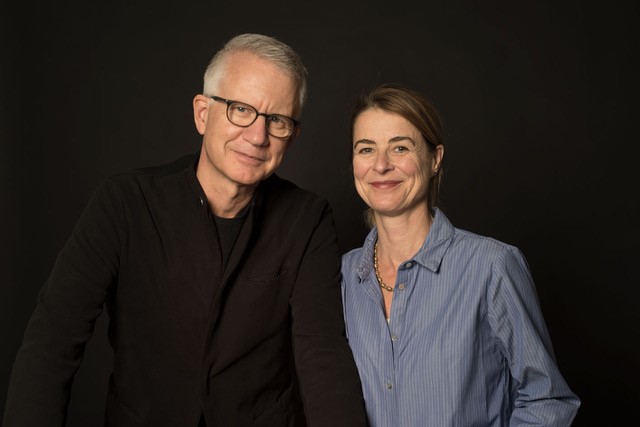
Since 2007, tauchgold (Heike Tauch and Florian Goldberg) have been realising pieces at the interface between radio and stage. Their work includes social satires, historical dramas and philosophical themes. However, specially composed music always plays a central role. In 2019, their stage work “The Glassing Sea. A Narratorio for Strings and Voices”, which was created with a composition by Cathy Milliken based on the radio piece “Metamorphosen”, premiered in Munich in 2019. For “Geborgte Landschaft. A Narratorio for Piano Trio and Voices”, the composer Dai Fujikura wrote the music (2022). The English stage version “BORROWED LANDSCAPE” premiered in New York in 2023 and will tour the US from 2024. Since 2022, tauchgold have been realising the RSB series “Mensch, Musik!” as an author-director team.

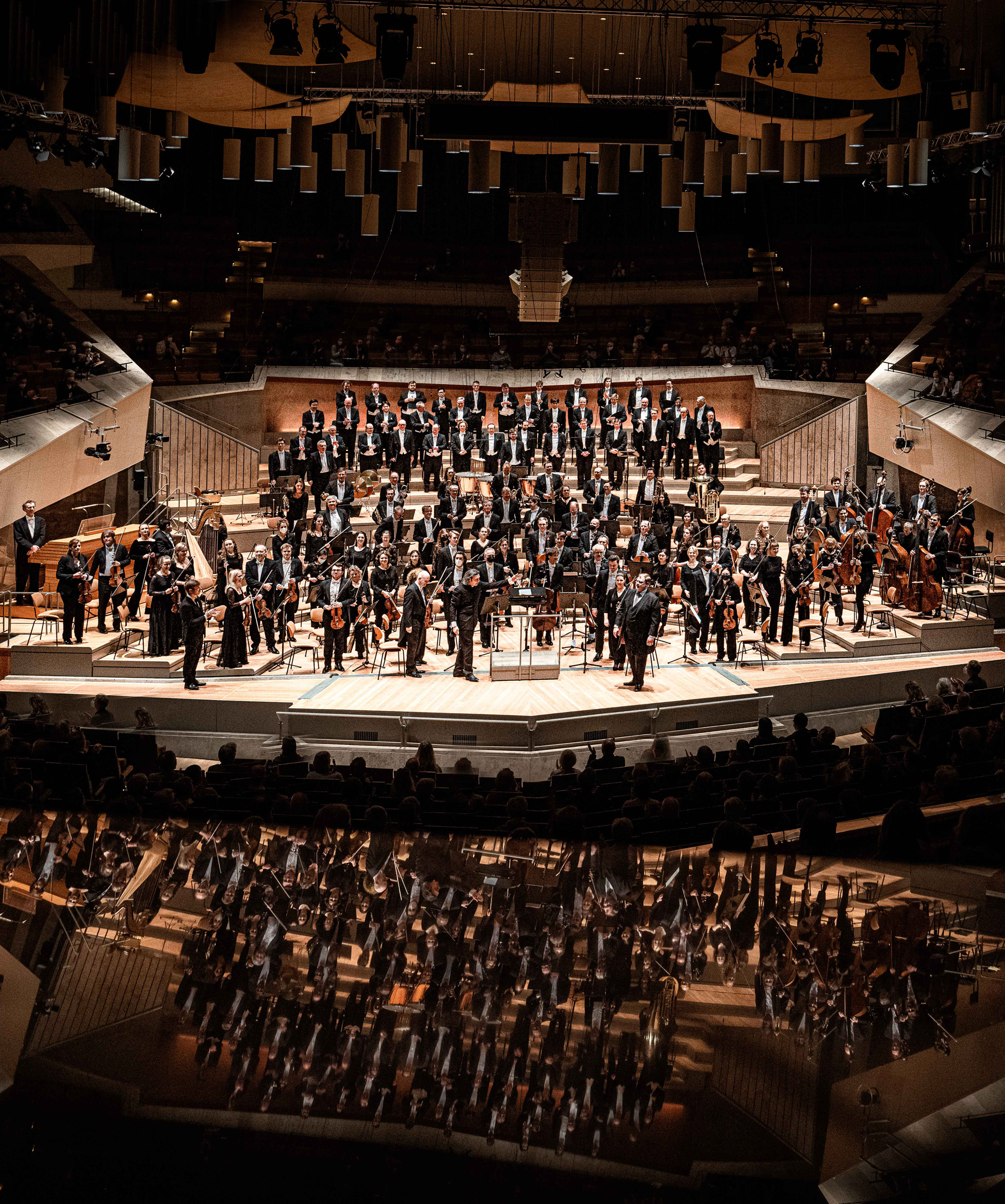
Evening cast RSB

First Violin
Wolters, Rainer
Ofer, Erez
Nebel, David
Neufeld, Andreas
Bondas, Marina
Drechsel, Franziska
Tast, Steffen
Pflüger, Maria
Polle, Richard
Behrens, Susanne
Oleseiuk, Oleksand
Scilla, Giulia
Sak, Muge
Cazac, Cristina

Second Violin
Contini, Nadine
Simon, Maximilian
Petzold, Sylvia
Draganov, Brigitte
Hetzel de Fonseka, Neela
Bauza, Rodrigo
Färber, Juliane
Bara, Anna
Palascino, Enrico
Kang, Jiho
Leung, Jonathan
Marquard, David

Viola
Rinecker, Lydia
Adrion, Gernot
Zolotova, Elizaveta
Drop, Jana
Doubovikov, Alexey
Montes, Carolina
Nell, Lucia
Yoo, Hyelim
Moon, Inha
Roske, Martha
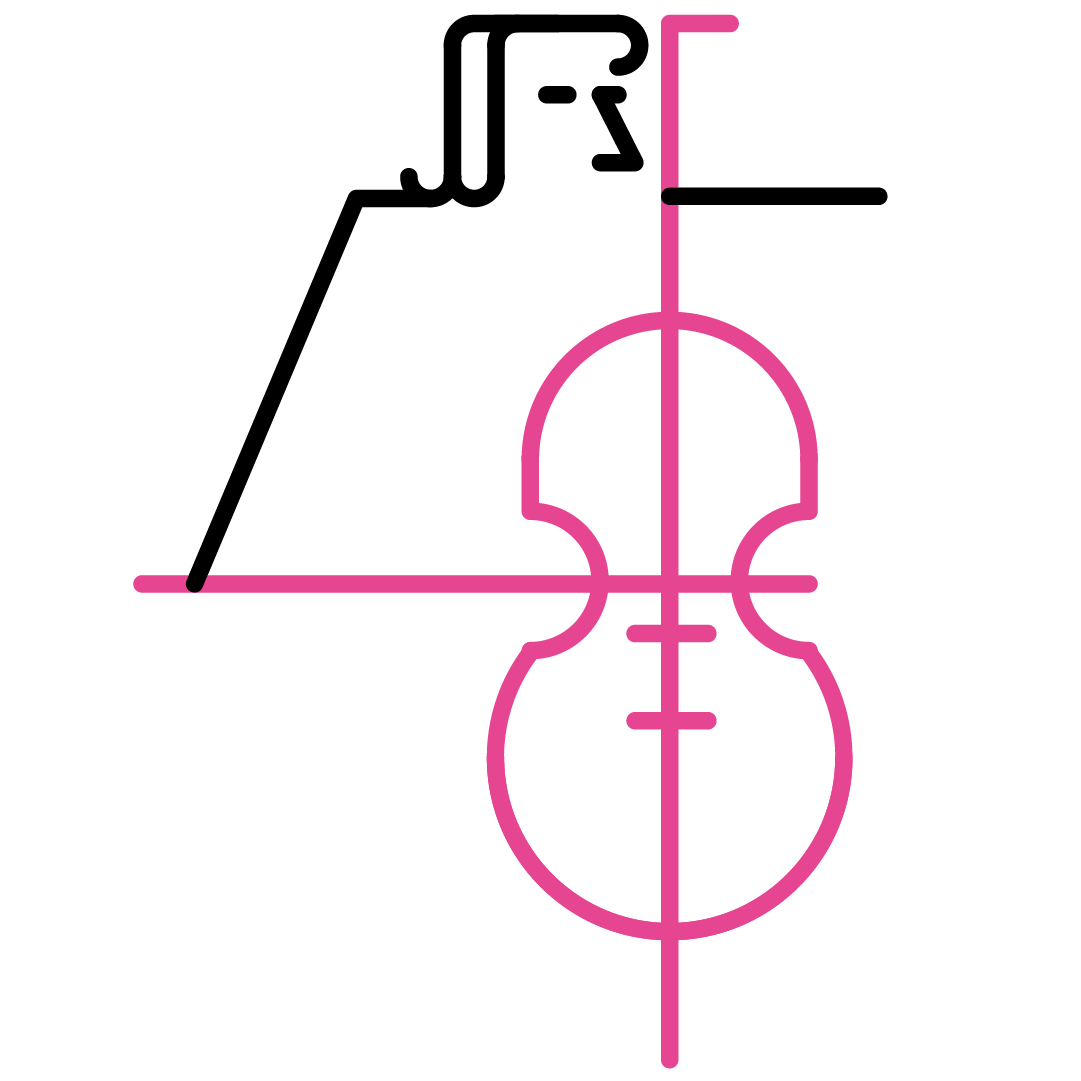
Violoncello
Eschenburg, Hans-Jakob
Weiche, Volkmar
Albrecht, Peter
Weigle, Andreas
Bard, Christian
Kipp, Andreas
Kalvelage, Anna
Kim, Jean

Doublebass
Wömmel-Stützer, Hermann
Figuireido, Pedro
Rau, Stefanie
Schwärsky, Georg
Buschmann, Axel
Ahrens, Iris

Flute
Schaaff, Ulf-Dieter
Döbler, Rudolf
Schreiter, Markus

Oboe
Grube, Florian
Vogler, Gudrun
Herzog, Thomas

Clarinet
Kern, Michael
Pfeifer, Peter
Korn, Christoph
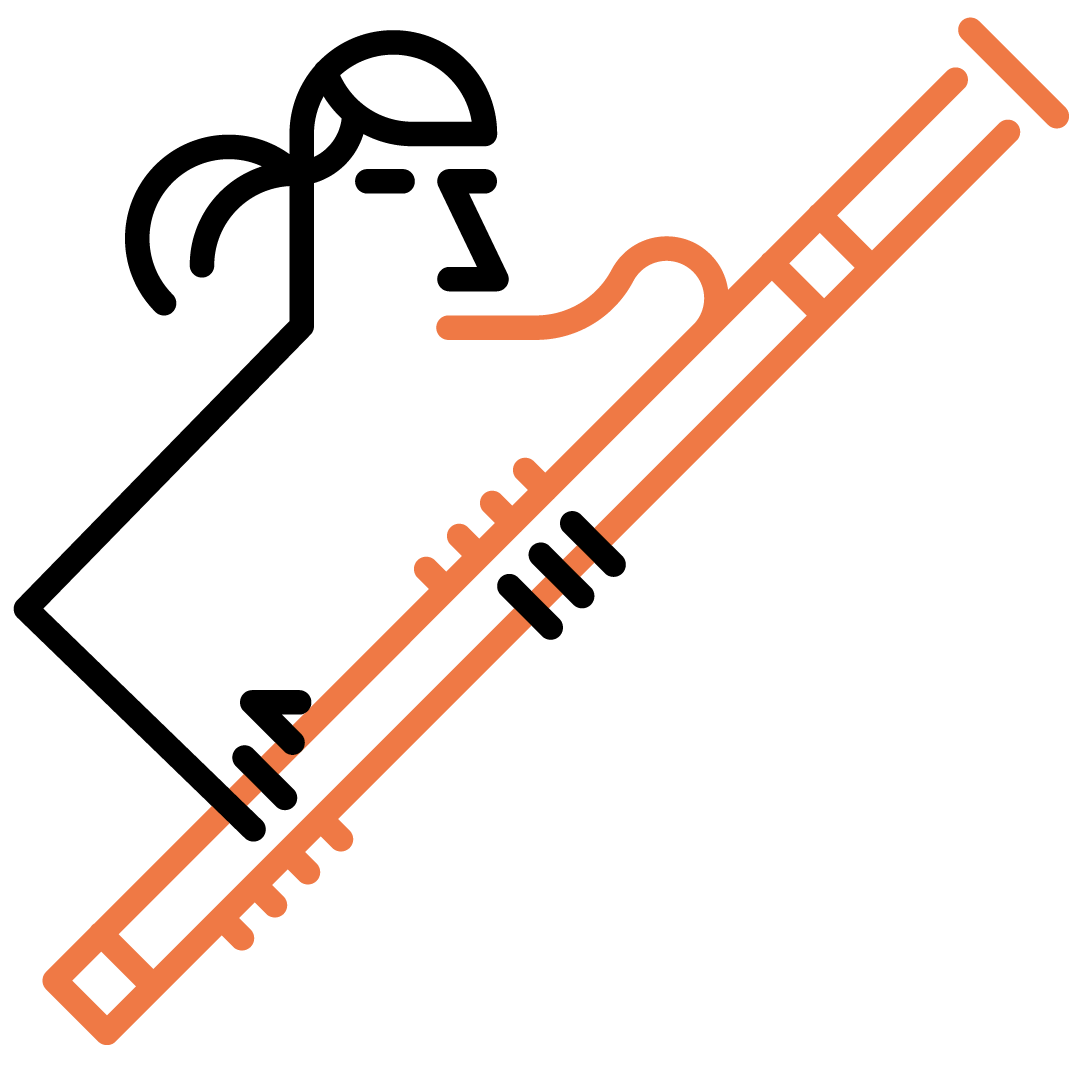
Basson
You, Sung Kwon
Voigt, Alexander
Königstedt, Clemens

Horn
Ember, Daniel
Mentzen, Anne
Hetzel de Fonseka, Felix
Trautmann, Benno

Trumpets
Oliver, Christian
Takeda, Mai
Niemand, Jörg
Gruppe, Simone

Trombone
Manyak, Edgar
Hölzl, Hannes
Hauer, Dominik
Lehmann, Jörg
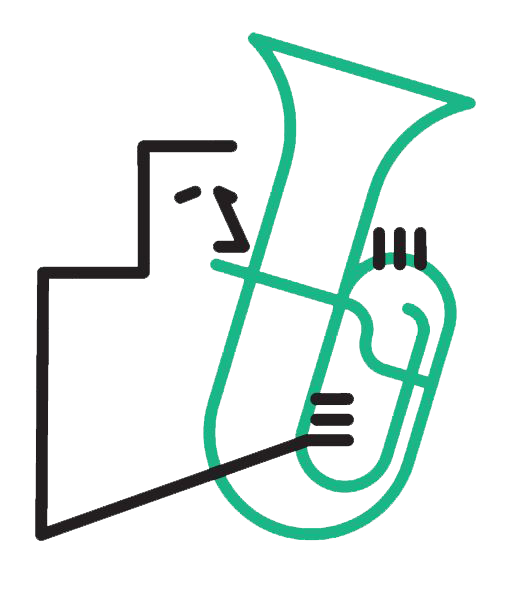
Tuba
Takebayashi, Yuki

Harp
Edenwald, Maud

Percussion
Tackmann, Frank
Thiersch, Konstantin
Azers, Juris
Reddemann, Ingo

Timpani
Wahlich, Arndt
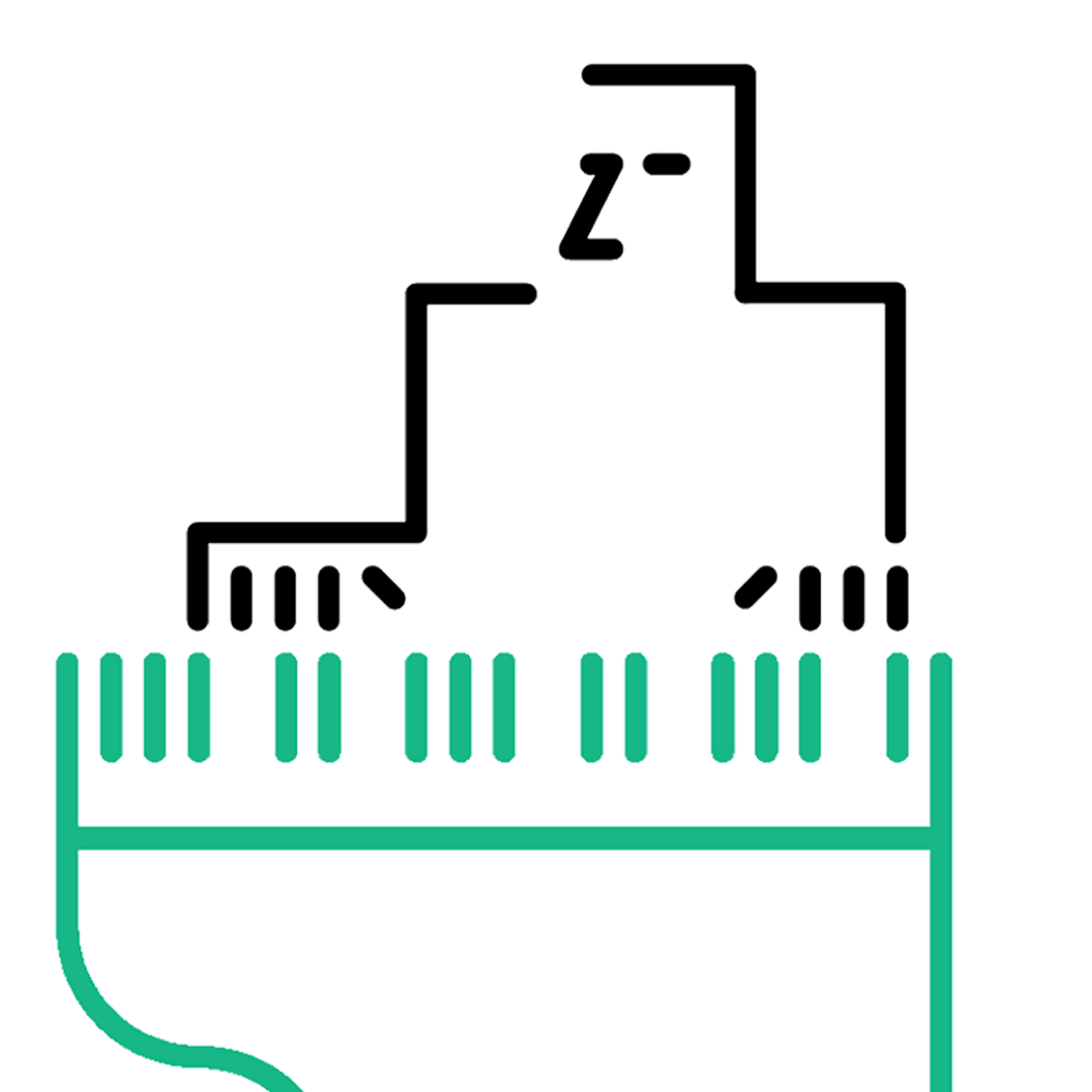
Organ
Schneider, Arno
Cooperation

Image rights
Bild Mensch, Musik! #6 Tänzer und Quartett © Peter Meisel
Bild Mensch, Musik! #6.1 Atmosphäre © Josina Herrmann
Bild Gustavo Llano tanzend © Josina Herrmann
Renée T. Coulombe am Klavier © Assaf Pocker
Bild Holzbläsergruppe © Josina Herrmann
Portrait Bas Wiegers © Marco Borggreve
Portrait tauchgold © Anke Beims
Portrait Philipp Mathmann © Annemone Taake
Portrait Gustavo Llano © Peter Meisel
Portrait Renée T. Coulombe © Assaf Pocker
Portrait Inka Löwendorf © Verena Eidel
Bild RSB Philharmonie © Peter Meisel